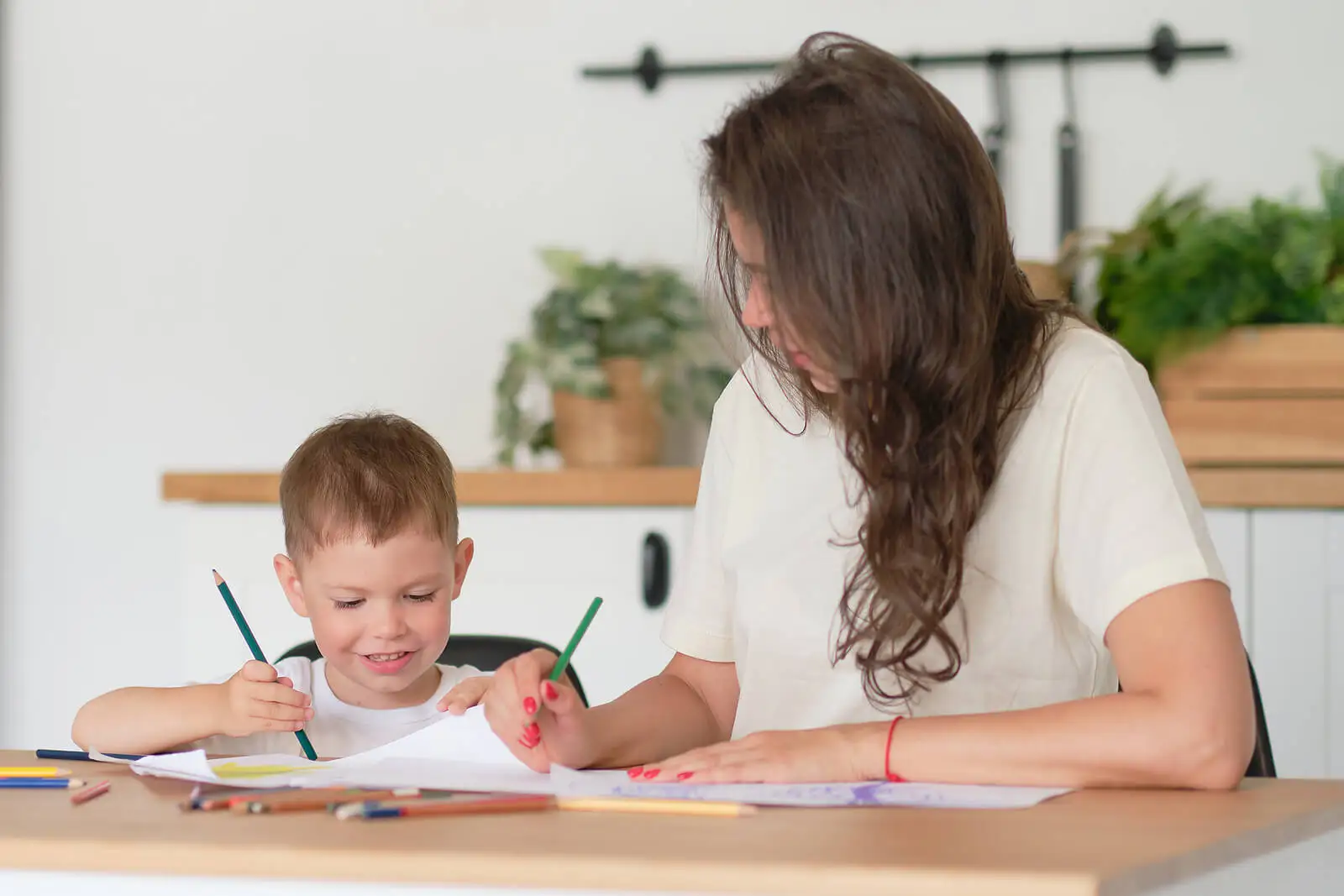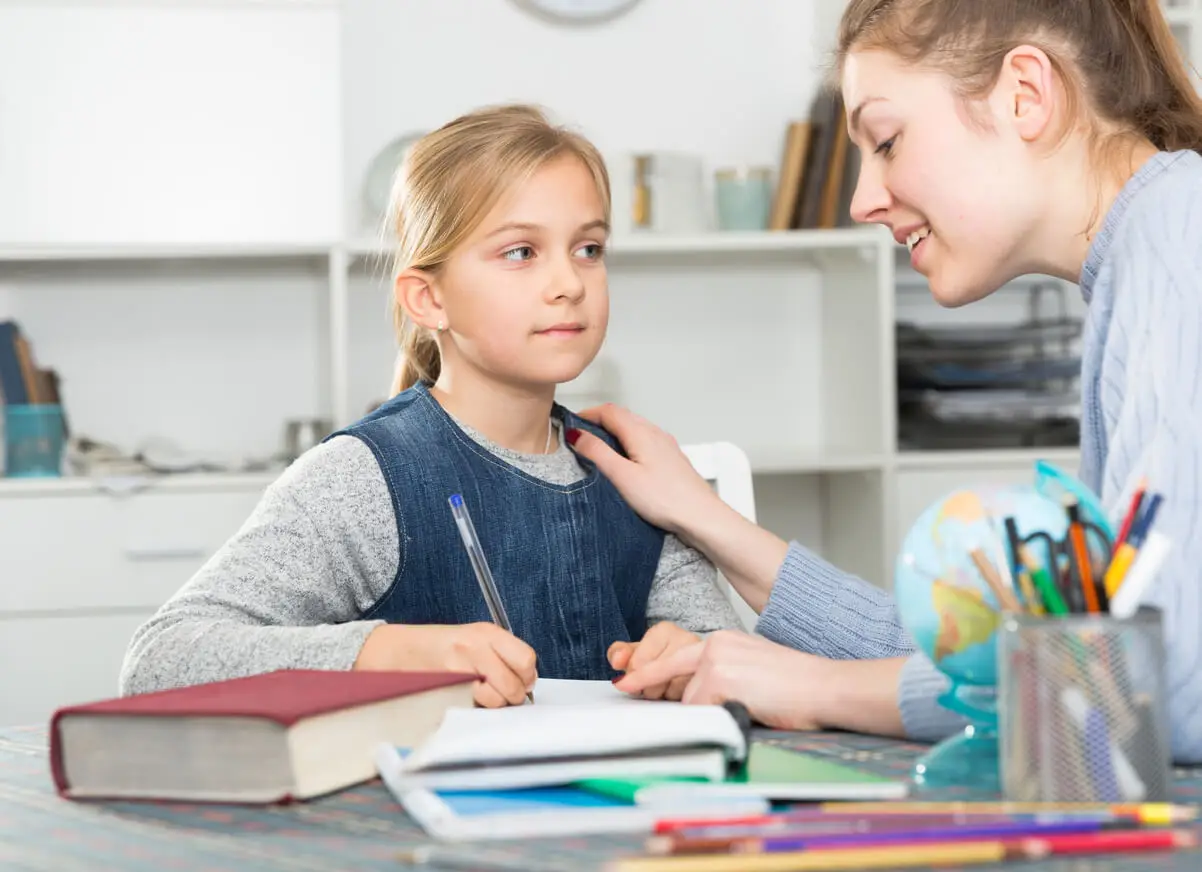Unschooling: Advantages and Disadvantages for Children


Written and verified by the philosopher Maria Alejandra Morgado Cusati
Unschooling is an educational method that replaces formal teaching of children with a freer and more individualized learning. That is, it allows the student to learn according to their own will and interest, instead of imposing or inculcating forced educational programs, as happens in schools.
In this sense, the learning process is encouraged through everyday activities such as play, household chores, personal curiosities, trips, books of interest to the child, private lessons, among others. Because of this, it has become a teaching method practiced by many families around the world. But, is it really beneficial for children? Here’s a detailed explanation.
What is unschooling?
Unschooling advocates the idea that children can direct their own learning, at their own pace, without the rigid structures of formal education. Practitioners emphasize child-initiated activities, believing that the more individual the learning, the greater its relevance, assimilation, and usefulness.
Thus, instead of following a curriculum, students are provided with a supportive environment that fosters their natural curiosity about the world. However, this educational method isn’t a new proposal, as it was born in the 1970s in the wake of the environmental and student movements of the time.
In this case, the philosopher and educator Ivan Illich popularized the term in his book “The Unschooling Society (1970)”. There, the author describes an educational model in which the child chooses what to learn, while the adult guides and supports him or her.
Illich also believed that traditional education (in which boys and girls must follow a single curriculum and the same schedule) undermines curiosity and creativity, and doesn’t allow for the development of soft skills.
For his part, in 1977, the American educator John Holt published his journal Growing Without Schooling (GWS), in which he explains how children can learn effectively outside the school environment, through homeschooling and out-of-schooling.
In short, for these authors, students learn through their life experiences, including their personal interests and private play, their participation in sports teams, and by accepting and taking on responsibilities at home.

Read also: How to Help Your Child Fight School Fatigue
How is unschooling practiced?
Unschooling promotes individualized learning by allowing children to make their own decisions regarding what and how to learn. In this sense, the role of the parent is to provide the student with an environment that fosters his or her natural curiosity.
This involves providing activities and tools that facilitate learning new things. For example, the following:
- Providing books of interest to them
- Engaging in enriching conversations and dialogues on topics that interest the child. In this case, the child can talk to parents, friends, or mentors.
- Visiting places that stimulate their curiosity or provide them with knowledge that interests them, such as museums or formal jobs.
- Interacting with nature and the world around them.
Likewise, in this educational method, there are no tests or grades to measure the child’s competence. Nor are there deadlines or goals set by the teacher. Instead, the student decides what he or she wants to learn and works on it at his or her own pace.
Advantages of unschooling
As explained in an article published in the National Home Education Research Institute, unschooling fosters an individualized learning process in children. In this way, it’s possible to highlight several advantages. Let’s see.
Prioritizes children’s needs and respects their learning rhythms
The way a child learns is largely determined by his or her personality type and learning style. In a traditional classroom, these aspects aren’t always considered when the instructor teaches.
For example, a student with a visual learning style may be at a disadvantage if the teacher uses an auditory teaching style. In this sense, unschooling is a good alternative to adapt teaching to the child’s needs and preferences, which will make their learning more meaningful.
Avoid academic stress
It has been proven that children can experience stress and anxiety before school assessments and demands. In fact, in severe cases, academic stress can lead to depression, sleep disorders, and substance abuse.
Related to this, unschooling decreases the incidence of these negative effects by eliminating school grading and testing.
Encourages curiosity and a desire to learn
A study of families who practice unschooling found that many parents described their children as more passionate and willing to learn.
In addition, unschooled children often develop greater research skills as they learn how to find resources and explore their interests more deeply.
Promotes self-awareness and self-confidence
Unschooled children aren’t trying to please adults with high grades or “good behavior”. Instead, they tend to pursue their own preferences and interests. This helps them not have to wait until adulthood to realize who they are or what they like about themselves.
Greater access to the real world
With unschooling, children gain more direct access to the dynamics of society and life in general by actively interacting with the world around them.
Promotes a safer learning environment
This method allows families to create the environment that best suits the child’s needs. In addition, the child is less likely to be involved in violent acts, such as bullying.
Family closeness
In the study cited above, it was also found that flexible scheduling promotes a more family-centered lifestyle. Likewise, supportive activities strengthen family ties.
Disadvantages of unschooling
However, it’s important to note that this method of teaching isn’t without its disadvantages. Some of them are mentioned below.
Lack of structure
Being an individualized teaching method, there are no predetermined formulas or recipes to guarantee the success of unschooling for all cases. Therefore, parents or mentors must be able to identify the child’s genuine preferences and needs.
With this, they’ll be able to provide instruction accordingly. However, this ability can be a challenge for many families, which hinders truly meaningful learning.
Subjective education
As parents are often responsible for the education of children, the content transmitted may be biased. Therefore, it’s important for them to be objective in order for education to be effective.
Discover more: 3 Tips on How to Raise and Educate your Teenager
Lack of socialization
Another weakness of unschooling is the lack of interaction with peers, which is crucial for the child to learn social dynamics, among other things. However, this aspect can be alleviated by providing the child with opportunities to socialize with other children and adults.
Requires time and organization
Parents who decide to unschool their children don’t have the free time they get when children go to school. On the contrary, they must spend many hours with their children, supporting them in their learning and providing them with teaching tools.
In other words, it requires a lot of dedication, willingness, and proper organization of time, aspects that many parents cannot provide.

Social criticism
This teaching method is no stranger to controversy. Many people disapprove of it. Therefore, it’s common for other parents, whose children do go to school, to believe that unschooled children “waste” their time playing and don’t learn anything.
Unschooling: a method that isn’t for all children
Unschooling is an effective method, as long as it’s done properly and responds to the real needs of the child. Likewise, it should be taken into account that not all teaching strategies are effective for everyone.
Therefore, it’s important to have all the necessary information and advice when implementing them. This includes knowledge of the legal requirements of your state or country to carry out unschooling, if it’s legal there.
All cited sources were thoroughly reviewed by our team to ensure their quality, reliability, currency, and validity. The bibliography of this article was considered reliable and of academic or scientific accuracy.
- Thomas J. (2017). Parent perspectives: Curriculum and homeschooling approaches.
nheri.org/home-school-researcher-parent-perspectives-curriculum-and-homeschooling-approaches/ - Gray P y Riley G. Journal of Unschooling and Alternative Learning [Internet]. 2013 [consultado el 19 de julio de 2022]; 7(14): 1-27. Disponible en: https://jual.nipissingu.ca/2013/01/12/year-2013-volume-7-issue-14/
- Wood S, Hart S, Little C, Phillips B. Test anxiety and a high-stakes standardized reading comprehension test: A behavioral genetics perspective. Merrill Palmer Q (Wayne State Univ Press) [Internet]. 2016 [consultado el 19 de julio de 2022]; 62(3):233-251. Disponible en: https://www.ncbi.nlm.nih.gov/pmc/articles/PMC5487000/
This text is provided for informational purposes only and does not replace consultation with a professional. If in doubt, consult your specialist.








